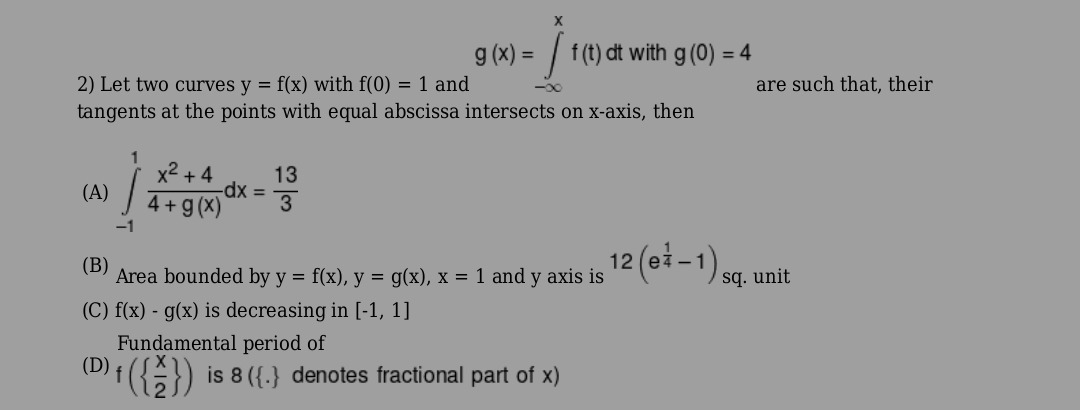Question
Question: Let two curves $y = f(x)$ with $f(0) = 1$ and $g(x) = \int_{-\infty}^{x} f(t) dt$ with $g(0) = 4$ ar...
Let two curves y=f(x) with f(0)=1 and g(x)=∫−∞xf(t)dt with g(0)=4 are such that, their tangents at the points with equal abscissa intersects on x-axis, then

∫−114+g(x)x2+4dx=313
Area bounded by y=f(x), y=g(x), x=1 and y axis is 12(e41−1) sq. unit
f(x)−g(x) is decreasing in [-1, 1]
Fundamental period of f({2x}) is 8 ({.} denotes fractional part of x)
(B), (C)
Solution
The condition that tangents at points with equal abscissa intersect on the x-axis implies: x−f′(x)f(x)=x−g′(x)g(x) f′(x)f(x)=f(x)g(x) since g′(x)=f(x). This leads to g(x)=4f(x). Given f(0)=1 and g(0)=4, we find f(x)=ex/4 and g(x)=4ex/4.
(A) The integral evaluates to 1213, not 313. (B) The area is ∫01(g(x)−f(x))dx=∫013ex/4dx=12(e1/4−1). This is correct. (C) f(x)−g(x)=−3ex/4. The derivative is −43ex/4<0, so f(x)−g(x) is decreasing. This is correct. (D) The period of {x/2} is 2. The period of f({x/2}) is also 2, not 8.
